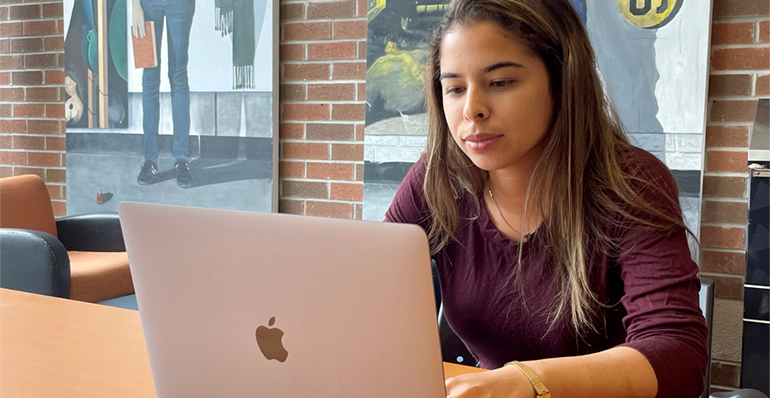The benefits of a co-op placement

As students enter or continue their post-secondary education, careers often come up in thought. For each specific program, there can be multiple career paths where you might not know what to go into. This is where co-op placements can come in handy.
A co-op placement is a job that contributes to your education. You go in and work in the field you’re studying and in return, you get credits towards your education, and in some cases, you get paid. At Fanshawe College, co-ops are a paid experience, which allows students to pay off bills and debt quicker.
“Out of a study from the C.D. Howe Institute in Toronto in 2020, listed a number of benefits for postgraduate experiences after co-op,” said Darlene O’Neill, the Director of Employment and Student Entrepreneurial Services at Fanshawe College. “About 56 per cent of students who take co-ops are more likely to get their first job post-graduation in the area they studied. Fifty-six per cent is really high actually. And about three years after graduation, they’re more likely to still be employed.”
Co-op placements allow students to have experience in the field, giving them the set of skills needed in the workforce. This can be a great benefit for employers because there is less that needs to be taught during the training phase. The classroom teaches the hard skills for the job, but those soft skills that can’t necessarily be taught, O’Neill said, are learned through experience.
Another benefit of co-ops is learning if that specific job or field is actually something you enjoy. The everyday experience is different from what you learn at school.
“If they go into a co-op and they realize it’s not the program for them, they can visit their career services departments, whether it’s in a university or a college, and get some advice around switching programs or advice around different types of applications of what they’re learning. You might be doing business marketing, for example, and you’re in a marketing company, and you’re marketing a program or product that’s not really working for you, but you still love marketing. Maybe your co-op consultant or your career advisor can provide you with some opportunities.”
Fanshawe students can contact their co-op advisors directly via phone or email, or they can visit them at the Co-operative Education Office located at D1063.
Western students can access their career coaching and support through their faculty or through the Careers and Experience department.
At Western, there have been over 4,700 students who have participated in work experiences, and the number of placements has doubled at the university in the last five years. At Fanshawe, O’Neill estimated about 70 co-op programs, which require students to participate in a work-education experience.
“I would highly recommend co-op. Students who take co-op programs are more likely to be successful in post-grad employment. And with the growth in our international students, it’s a really important way for them to gain Canadian work experience because they don’t have the networks that our Canadian students have. But also for our Canadian students, it’s a great way to expand networks.”
O’Neill recommended anyone who is going to take a co-op program be open to relocating. She said there are some really cool experiences around the world and it’s an opportunity to get paid and have it applied to your learning.

